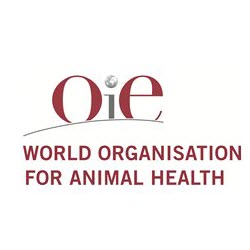The World Organisation for Animal Health is examining Canada’s application for negligible-risk status
By Diego Flammini
Staff Writer
Farms.com
Canada’s beef sector is close to receiving an important designation from a global health body.
The World Organisation for Animal Health (OIE) has recommended to its other delegates that Canada’s application to change its status from a controlled-risk country for bovine spongiform encephalopathy (BSE) to a negligible-risk country meets the necessary requirements.
Canada has been a controlled-risk country since 2007.
Canada must meet multiple conditions before it can achieve the negligible-risk status, said Dennis Laycraft, executive vice president of the Canadian Cattlemen’s Association.
“Eleven years must pass since the birth of the last animal with BSE and that last animal was born in 2009” he told Farms.com. “There’s a full dossier of requirements we have to meet and prove that we’ve met that we have to submit to the OIE.”
 The Canadian cattle sector collects upwards of 30,000 animal and feed samples per year to help it meet surveillance goals.
The Canadian cattle sector collects upwards of 30,000 animal and feed samples per year to help it meet surveillance goals.
The Canadian Food Inspection Agency submitted Canada’s report in July 2020. The OIE’s scientific review group completed its work in late February and recommended Canada be recognized as having negligible risk with it comes to BSE.
A few steps remain before Canada can officially receive its status, Laycraft said.
“Our report is subject to a 60-day comment period for those who aren’t on the review committee to ask questions,” he said. “Then there’s a formal vote at the OIE general assembly in May where we can receive the designation.”
Canada’s last case of BSE occurred in 2015 in a six-year-old beef cow on an Alberta ranch.
Upon hearing of the confirmation, multiple countries imposed restrictions on imports of Canadian beef. They included Taiwan, Peru, Belarus, Indonesia and South Korea.
Since then, Canada has regained access to most markets. But this designation from the OIE would provide even more opportunities, Laycraft said.
“There are still some restrictions on over 30-month beef and some countries in Asia want to see us get to negligible-risk,” he said. “There’s demand for offal products in Asia where we hope to be able to capitalize on if we get the designation from the OIE.”
Canada’s federal minister of agriculture is confident the OIE will give the Canadian beef sector the status it seeks.
“Although we still need to await the final vote, I am optimistic that this will soon allow them to expand their markets for cattle and beef exports to the U.S. and other foreign markets,” Marie-Claude Bibeau said in a March 12 statement. “Our government will continue to stand up for our hard-working beef producers who provide top-quality products."